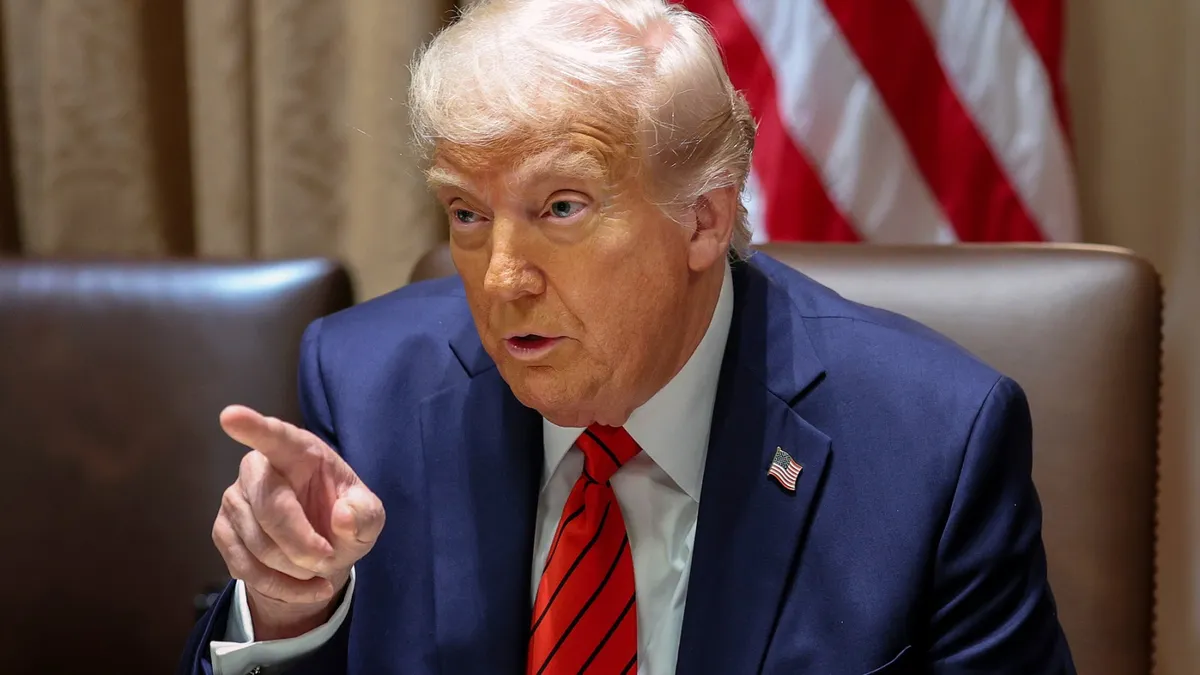
On Monday, former President Donald Trump publicly criticized the Supreme Court after the justices issued a temporary block on his administration's plans to deport Venezuelan immigrants. Trump's remarks highlighted his belief that America “cannot give everyone a trial,” which he views as a fundamental constitutional right that could impede his immigration policies.
Over the weekend, the Supreme Court took up an emergency petition from the American Civil Liberties Union (ACLU) of Texas. The ACLU raised concerns that Trump's administration was preparing to deport a group of Venezuelan immigrants under the Alien Enemies Act. This law allows for the deportation of non-citizens deemed a threat to national security without providing a reasonable opportunity for them to contest their removals.
Trump's administration previously deported hundreds of Venezuelan men to a notorious prison in El Salvador, a move he justified by invoking the Alien Enemies Act—a controversial law historically associated with the internment of Japanese Americans during World War II. The former president contends that he can utilize this law to target Venezuelans he labels as gang members associated with terrorist organizations.
The Supreme Court, which currently has a 6-3 conservative majority, ruled earlier this month that the Trump administration must notify detained immigrants under the Alien Enemies Act of their impending removal. The justices emphasized the importance of providing notice “within a reasonable time” to allow detainees to seek habeas relief in the appropriate legal venue before any removal takes place.
Despite this ruling, the ACLU has indicated that the Trump administration is not complying, often providing Venezuelan detainees with less than 24 hours to challenge their deportations. Reports suggest that many detainees had already been placed on buses heading to the airport for deportation.
In response to the ACLU's warnings, the Supreme Court issued an order preventing the deportations “until further order of this court.” This decision invites Trump’s solicitor general to respond to the ACLU's application, further complicating the administration's efforts to carry out its immigration policies.
In a series of posts on Truth Social, Trump expressed frustration with the Supreme Court, insisting that he is merely fulfilling his duty to remove criminals from the United States. He claimed, “My team is fantastic, doing an incredible job,” but lamented that they are “stymied at every turn by even the U.S. Supreme Court.”
Trump further asserted that extending due process rights—as mandated by the Fifth Amendment—to all immigrants targeted for deportation would be impractical. “We cannot give everyone a trial,” he argued, suggesting that the sheer number of immigrants would result in an unmanageable backlog of cases. He described the current situation as “ridiculous,” emphasizing the need for expedited actions against those he deems illegal immigrants.
Former President Trump played a significant role in shaping the current Supreme Court, helping to establish a conservative supermajority. This judicial body has, in turn, facilitated several favorable outcomes for Trump, including a unanimous ruling that allowed him to remain on state ballots despite accusations of inciting the January 6 Capitol insurrection and a delay in his federal prosecution for efforts to overturn the 2020 election results.
Trump has often expressed gratitude towards the conservative justices, including Chief Justice John Roberts, whom he thanked at recent campaign events. However, as the Supreme Court now insists Trump provide basic due process rights to immigrants before their deportation, it appears he may have quickly forgotten their previous support.